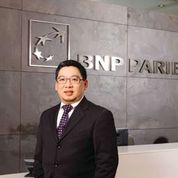By Shanny Basar, Senior Writer, Markets Media Group
The impact of the Covid-19 pandemic on trading and the introduction of the Asia Pacific IOI Charter were two themes that dominated the FIX Asia Pacific Trading Summit last month. The summit was held in Hong Kong on October 20.
Market participants agreed that the conditions this year showed the value of having both a high- and low -touch trading operation. As staff moved to remote working there was a shift to electronic trading but the extreme volatility in March meant that it was useful to talk to brokers in order to find the necessary liquidity.
Working remotely also highlighted the value of screen real estate as traders did not have the same number of screens at home as in the office and the requirement for connectivity.

Francis So, Co-Chair, Asia Pacific Steering Committee, FIX Trading Community, and Head of Trading Asia Pacific at BNP Paribas Asset Management said on a panel that the buy side had coped relatively well with the shift to working from home.
He said BNP Paribas Asset Management had contingency plans in place due to the protests in Hong Kong last year.
“The buy side changed its mentality towards trading with regards to the split between voice and electronic,” he added. “During the high volatility our portfolio managers were not very active in trading as they were well positioned.”
He continued that the asset manager had no issues in equities trading but there were occasions when it was hard to find liquidity in fixed income, especially for blocks, as banks stopped making prices.
Travis Griffith, Head Trader Equity – Asia Pacific at Fidelity International, said on a panel that market participation at the asset manager had shifted toward high-touch in March to find liquidity during the extreme volatility and in order to be more nimble.
Griffith added: “Since volatility has subsided in June and July there has been a notable shift to low-touch.”
Data was presented at the summit showing that volatility in Asia Pacific increased 98% in March over January which was much lower than in developed markets. Volatility has also normalized more quickly in the region, to an average of 30% above January, than in the rest of the world as Asian governments handled the pandemic more efficiently.

Evan Walters, Vice President – Equity Trading at BlackRock, said on a panel that there was an index rebalance in May and short-selling restrictions, together with the previous volatility, meant that liquidity providers could not position themselves as effectively. He said: “Spreads moved to an extent that I have not previously seen in my career.”
Asia Pacific IOI Charter
Clare Witts, Director, Government & Regulator Relations at CFA Institute, gave a presentation on behalf of four trading associations, including FIX, on the charter for standardizing indicators of interest for equities. A lack of consistency in IOIs have been cited by market participants as a key reason for a loss of confidence and trust between the buy and sell side.
Over the past 18 months the industry, including both the buy and sell side, have developed a charter which details best practices for IOIs and it is due to be launched on November 6. In addition to the charter, there will be a due diligence questionnaire which allows the buy side to assess how the sell side is addressing the charter.
Both documents will be published on the ASIFMA website, together with a list of sell-side firms who intend to adhere to the charter next year.
James S Levy, Head of Dealing at HSBC Global Asset Management, said at the summit: “There are standards for IOIs in Europe and US but we need something that is specific to Asia because trading here is different.”
Remote working
Participants at the summit felt that the current working conditions were the new normal with the ability to work from home, increased flexibility and less travelling.
So continued: “A silver lining is the adoption of more technology which will make us more efficient.”
Another silver lining could be the ability to recruit more diverse talent or retain more staff as firms allow more flexibility. However, firms are also aware of potential metal health issues due to staff losing contact with colleagues or having to work in small crowded apartments. As a result, some firms have set up mental health hotlines for their staff.
“You need to be in the office at some point together, especially for new traders,” So added. “We also have not yet completely sorted out the regulatory framework for working from home after the crisis subsides.” •
